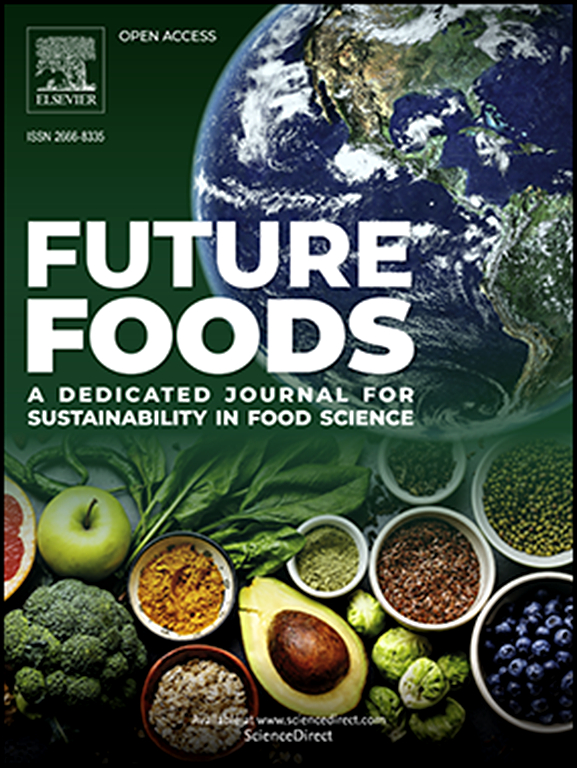口味与信任:心理因素对认证肉类需求的影响
IF 8.2
Q1 FOOD SCIENCE & TECHNOLOGY
引用次数: 0
摘要
受安全、质量和可持续性问题的驱动,全球对认证肉类的需求不断增长,这给阿富汗等脆弱经济体带来了独特的挑战。本研究调查了宗教信仰、健康意识和价格敏感性等心理变量如何影响阿富汗消费者对鸡肉属性的偏好和支付意愿。这些属性包括清真认证、新鲜度、无抗生素声明和包装。在喀布尔进行了一项有400名参与者的离散选择实验(DCE)。数据分析使用混合logit模型来衡量异质性偏好和两阶段框架来量化心理影响。在这个脆弱的环境中,清真认证要求最高的溢价(175.5 AFN),突出其作为宗教命令和信任启发式的双重作用。新鲜度(50.5 AFN)和无抗生素声称(26.5 AFN)都被评估。健康意识在形成这些偏好方面发挥了重要作用。令人惊讶的是,更高的价格敏感性增加了对清真认证和新鲜度的需求,强调了它们无可争议的文化和安全价值。调查结果表明,清真认证具有多种功能,既是宗教合规的信号,也是安全的信号。本研究将心理模型置于集体主义和冲突后环境中,为政策制定者和行业利益相关者在脆弱的市场中推广认证产品提供有价值的见解。本文章由计算机程序翻译,如有差异,请以英文原文为准。
Taste and trust: The impact of psychographics on certified meat demand
The growing global demand for certified meat, driven by safety, quality, and sustainability concerns, poses unique challenges in fragile economies such as Afghanistan. This study investigated how psychographic variables such as religiosity, health consciousness, and price sensitivity influence Afghan consumers' preferences and willingness to pay (WTP) for chicken meat attributes. These attributes include Halal certification, freshness, antibiotic-free claims, and packaging. A discrete choice experiment (DCE) was conducted in Kabul with 400 participants. Data were analyzed using a mixed logit model to measure heterogeneous preferences and a two-stage framework to quantify psychographic impact. In this fragile environment, Halal certification commands the highest premium (175.5 AFN), highlighting its dual role as a religious imperative and a trust heuristic. Freshness (50.5 AFN) and antibiotic-free claims (26.5 AFN) were both valued. Health consciousness played an important role in shaping these preferences. Surprisingly, higher price sensitivity increased demand for Halal certification and freshness, emphasizing their indisputable cultural and safety value. The findings show that Halal certification serves multiple functions as a signal of both religious compliance and safety. This study contextualizes psychographic models in collectivist, post-conflict settings, providing policymakers and industry stakeholders with valuable insights for promoting certified products in fragile markets.
求助全文
通过发布文献求助,成功后即可免费获取论文全文。
去求助
来源期刊

Future Foods
Agricultural and Biological Sciences-Food Science
CiteScore
8.60
自引率
0.00%
发文量
97
审稿时长
15 weeks
期刊介绍:
Future Foods is a specialized journal that is dedicated to tackling the challenges posed by climate change and the need for sustainability in the realm of food production. The journal recognizes the imperative to transform current food manufacturing and consumption practices to meet the dietary needs of a burgeoning global population while simultaneously curbing environmental degradation.
The mission of Future Foods is to disseminate research that aligns with the goal of fostering the development of innovative technologies and alternative food sources to establish more sustainable food systems. The journal is committed to publishing high-quality, peer-reviewed articles that contribute to the advancement of sustainable food practices.
Abstracting and indexing:
Scopus
Directory of Open Access Journals (DOAJ)
Emerging Sources Citation Index (ESCI)
SCImago Journal Rank (SJR)
SNIP
 求助内容:
求助内容: 应助结果提醒方式:
应助结果提醒方式:


